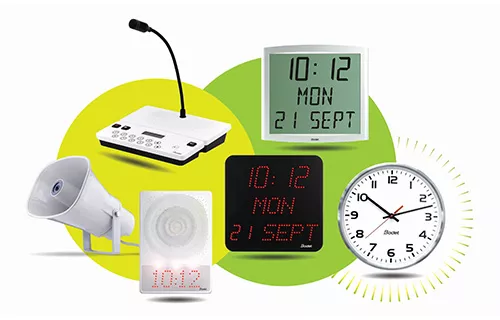A school’s culture should aim to build a strong community, a sense of belonging for pupils and a vision for the whole school. As a result, it can build trust and respect between staff and pupils.
In order to ensure the culture is implemented, there needs to be a desire for the culture to be fulfilled by all; this can be a challenge when trying to get pupils involved.
What does a modern school culture look like? How can you adapt to the changing needs of pupils?
What is School Culture?
On a basic level, a school’s culture includes how the school is run, however, it is much more complex. Combining the values from the headteacher, senior leadership team, teachers, parents and pupils, the school culture supports pupils on their journey into the wider world in terms of beliefs and attitudes. While the values may start from the headteacher, it is important to regularly update them and incorporate the views of the pupils, as the culture greatly influences their behaviour, their overall school experience, and supports their development into adulthood.
While there are different influences on a school culture, including the school’s history and policies, should yours always remain the same? Can your school culture be modernised to keep up to date with culture in a broader context?
According to the Department for Education, ‘cultures range from how schools support parents’ and pupils’ aspirations and expectations, to the way in which they use data and evidence to monitor outcomes and how they respond to the latest developments in research.’ Let’s look at this in more detail…
What are the Elements of School Culture?
When you consider all of the elements of school life, the culture has a lot to encompass. The Department for Education state that the school culture can be categorised into different themes:
- Aspirations and expectations
- Positivity, energy and purpose
- Collaboration and competition
- Data and evidence
- Behaviour and attendance
- Staffing
- Leadership
- Targeting resources
- Partnerships and activities
- Learning environment
- Parental engagement
While some of these elements are data driven or determined by the government, others, including ‘positivity, energy and purpose’ and the ‘learning environment, are shaped more by the stakeholders in the school, such as staff and pupils.
Improving the Learning environment
Creating an effective and supportive learning environment is key to the academic success of the students. While this incorporates several factors, including behaviour, visual stimuli, teaching styles and encouragement, there are simple solutions which can make the day run a lot more smoothly.
From year groups and key stages to different subjects and varying lunch start times, communicating to staff and pupils can be a logistical nightmare. When bells are constantly ringing for different situations, it can lead to pupils being distracted from working time and causing unnecessary confusion. It is much simpler when the bell system can account for different schedules in different locations.
With Bodet Time’s Harmonys system, different zones can be created, reaching across multiple buildings on the same premises. This means that alerts can be communicated without disrupting the flow of learning and it is much easier for staff when directing pupils. This is particularly important during exam time. Usually, all bells are stopped so as not to disturb those sitting the exams, leaving the rest of the school clock watching. Our Harmonys system can direct class change alerts specifically to the group that they are intended for, leaving the exam room in silence.
Creating a fun and positive atmosphere
In terms of improving positivity, why not modernise the school’s culture by introducing fun music to class change? The pupils will find this ‘cool’, depending on the choice of song! Calming music could be used between lessons to encourage moving mindfully, or livelier music to symbolise the start of lunch or the end of the school day.
Games could even be introduced, such as getting to the next class before the music stops, having competitions to win a chance to choose the end of the day music. This improves efficiency of moving around the school as well as creating fun for the pupils. A different tune symbolising a different action reduces confusion and ensures that everybody gets to where they need to be at the right time.
Why not consider the staff at the end of the day and play the radio or music through the audio system?
With Bodet Time’s Harmonys system you can choose between different pre-programmed melodies and have the opportunity to add your own. This could make a massive difference to the environment and experience of the school day for the children, all while creating a fun and positive culture.
Increasing Attendance Across Your School
Did you know that five school days are lost every year due to pupil lateness?
Promoting good behaviour and regular attendance are vital to academic success and an important part of the culture. When pupils are late, not only are they reducing their own learning time but also distracting their peers and reducing their time as well.
Having a premise that runs smoothly and to the same time across all buildings, with accurate time keeping and programmed class change times, ensures that pupils get to where they need to be at the right time, reducing chaos in the corridors and frustration for teachers when the pupils haven’t arrived.
Bodet Time’s synchronised clock systems remove the days lost due to lateness, improve school efficiency and increase learning time. Synchronising the clocks across the premises ensures that the lessons run on time; this goes a long way to improving attendance and promoting a positive and organised learning culture with an emphasis on the importance of learning.

Start Modernising your school culture today!
Combining better attendance, improving the learning environment and creating a positive ethos support a new and modern school culture. Why not make a change and work towards continually improving the school culture with increased efficiency of how the school is run and better attitudes from the pupils? Add some fun and see the impact on your school and the pupils!
Bodet Time’s Harmonys combines all of these elements and support making the first steps in modernising your school culture.
Contact our team for a personalised quote on how to modernise your school with our synchronised clocks, class change and PA systems



